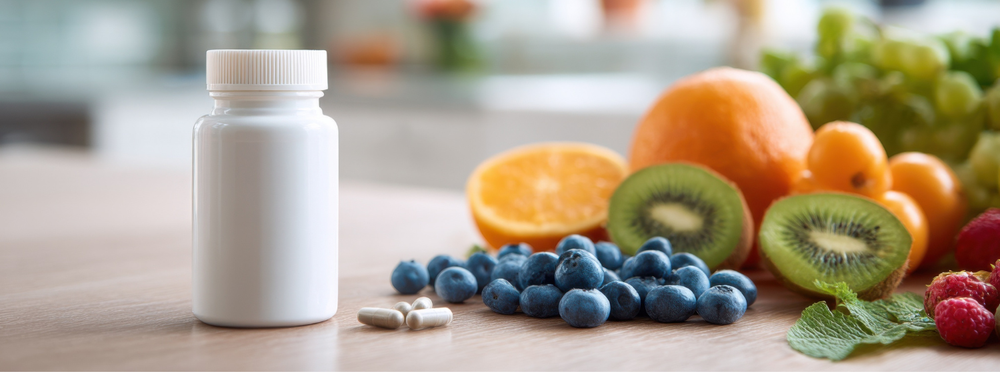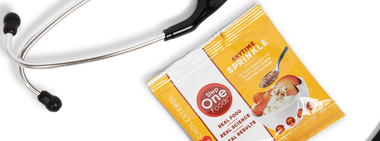Fiber Supplements vs. Fiber from Food – Is There a Difference?

Walk down any pharmacy aisle and you’ll see shelves of powders, gummies, and capsules promising to deliver your daily dose of fiber. For anyone who struggles to meet the recommended amount through diet alone, fiber supplements like psyllium husk, Metamucil, or inulin-based products can seem like an easy solution. But when it comes to long-term health, not all sources of fiber are created equal.
The Role of Fiber Supplements
Fiber supplements can have value in specific situations. Psyllium husk, for example, has been shown to help lower LDL cholesterol and improve bowel regularity. Soluble fiber supplements may also help some people manage constipation or mild digestive discomfort.
However, relying solely on supplements misses the bigger picture. Isolated fiber can’t mimic the complex mix of nutrients and antioxidants found in whole foods. While supplements may offer short-term relief, they don’t deliver the same cardiometabolic benefits that come from eating fiber-rich foods.
Why Whole-Food Fiber Works Better
Fiber from whole foods does much more than keep digestion running smoothly. Every apple, oat, or almond contains a unique combination of nutrients that interact to improve health in ways science is still uncovering. These natural “packages” of fiber include vitamins, minerals, and healthy fats that support gut bacteria, reduce inflammation, and improve blood sugar and cholesterol profiles.
In fact, studies show that people who get their fiber primarily from plant foods—not supplements—are less likely to develop heart disease, diabetes, and other chronic conditions. That’s because the synergy between fiber and other nutrients found in real foods is what drives meaningful, lasting results.
The Real-Food Advantage
At Step One Foods, we’ve built every product around that principle. Instead of isolating nutrients, we combine fiber-rich ingredients like oats, nuts, fruits, and seeds to deliver powerful, real-food nutrition in the right combinations. It’s an easy way to add meaningful fiber to your diet—without reaching for a supplement jar.
So while fiber supplements can have a place, whole foods will always win when it comes to improving long-term health.
About Step One Foods: Step One Foods offers convenient, scientifically-formulated foods clinically validated to rapidly reduce cholesterol and improve cardiometabolic health. Real food. Real results. Unapologetically delicious. Learn more at steponefoods.com.

Tested & Proven Results.
- Cardiologist formulated
- Supported by over 500 publications
- Clinically-proven, in a double-blind randomized trial with Mayo Clinic and The University of Manitoba
80% of participants lowered their cholesterol in just 30 days. With just two servings per day, Step One Foods offers a proven-effective way to naturally lower LDL (bad) cholesterol.
Get heart health tips and articles like this, delivered right to your email.
New articles every week.
You may also like...

Insulin Resistance, Prediabetes and Type 2 Diabetes. Part 1: Defining the Problem

The 95% Problem: Is Your Doctor Missing the Fastest Way to Lower Cholesterol?

You don’t need to avoid foods with cholesterol…except for these


